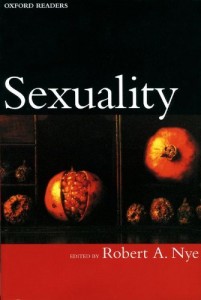 Sexuality has always been a rather obsessive human concern. Although it has been the true subject of countless past cultural, religious, and political discourses that did not dare to mention it directly-or even indirectly-today we possess both the language and the cultural gusto to discuss it as straightforwardly as we like. Indeed, we sometimes do so with a frankness that would have shocked people only a few decades ago. For now it seems impossible to contemplate human happiness without some measure of sexual fulfillment, although this topic remains a notoriously elusive and negotiable ideal. Furthermore, we are unlikely to understand the promise or the limits of our contemporary sexualities unless we understand those of the past. Sexuality offers a fascinating look at this controversial subject, collecting texts ranging from antiquity to the present. It is the only reader of its kind that organizes material chronologically and covers such a long period.
Sexuality has always been a rather obsessive human concern. Although it has been the true subject of countless past cultural, religious, and political discourses that did not dare to mention it directly-or even indirectly-today we possess both the language and the cultural gusto to discuss it as straightforwardly as we like. Indeed, we sometimes do so with a frankness that would have shocked people only a few decades ago. For now it seems impossible to contemplate human happiness without some measure of sexual fulfillment, although this topic remains a notoriously elusive and negotiable ideal. Furthermore, we are unlikely to understand the promise or the limits of our contemporary sexualities unless we understand those of the past. Sexuality offers a fascinating look at this controversial subject, collecting texts ranging from antiquity to the present. It is the only reader of its kind that organizes material chronologically and covers such a long period.
Part I forms a chronological narrative of the development of thinking about sexuality from the ancient Greeks to the present.
Part II discusses nineteenth-century investigation of phenomena such as hysteria. prostitution, and fetishism. Part III brings together contermporary conceptions of the sexual body, and Part IV addresses the issue of whether the sexual revolution of the late sixties and seventies has brought about a permanent change in the sexual landscape of western civilization. Sexuality is ideal for use in undergraduate courses in a variety of disciplines including history, women’s studies, medical history, sociology, gay and lesbian studies, anthropology, religion, and literary studies.
REVIEWS:
`…this book is worth pursuing…The only real problem in writing about sex is that of predictability; by juxtaposing many writers and many ideas, Sexuality avoids that fate and offers a great deal of enlightenment as well.’ The Times
`An excellent selection of essays….students will get a lot out of it. Useful across other c.s. modules, too.’ Dr David Bell, Staffordshire University


